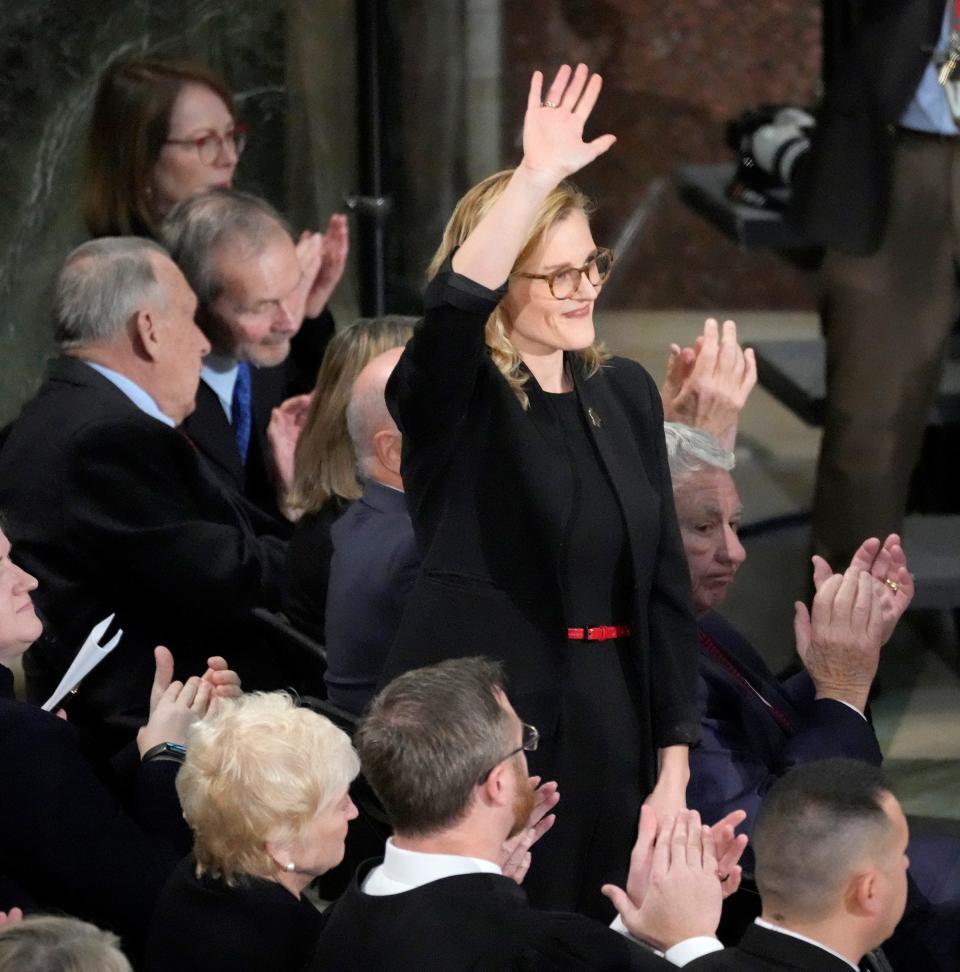Godlewski should stay in her lane, secretary of state doesn't run Wisconsin elections
The irony of elections today is that we have more tools than ever to ensure that elections are fair, open and honest; yet confidence in election results may be at an all-time low. This didn’t happen overnight.
When I was elected chair of the Wisconsin Elections Commission 11 months ago, my number one goal was to restore confidence in Wisconsin election results and processes. I thought I was equipped to take on this job. After all, I had served as a member and chair of a predecessor agency — the Wisconsin Elections Board — a few decades ago.
I never thought restoring confidence in elections would be easy, but I have to admit after 11 months on the job, the task remains formidable, and I am still learning. Aside from a lack of confidence in election results, the issues confronting election officials are numerous, from protecting critical infrastructure (yes, hacking by malign actors is a threat) to increasing polling place accessibility. Along the way I have discovered, there are a lot of moving parts, not all of which are moving in the same direction.
On the good side I have been impressed by the depth and breadth of the assets in place to ensure that elections in Wisconsin are fair and secure. It starts with the Elections Commission’s dedicated and experienced staff, but also includes county and municipal clerks who often work with limited budgets to administer elections.
These government and quasi-governmental forces are supplemented by organizations that play a role in developing election policy and in disseminating election information. Groups that come to mind are Disability Rights Wisconsin, the League of Women Voters and Common Cause Wisconsin. Again, while I certainly don’t agree with these groups on everything, they play a constructive role in Wisconsin’s elections, in part because they have developed longstanding relationships with election officials as well as institutional knowledge of the ins and outs of election processes.

On the other hand, there are those pushing in the wrong direction. These forces fall into two camps. The first consists of those who knowingly or, perhaps in some cases, unwittingly, peddle misinformation, lies and confusion. This camp fabricates or repeats false accusations against election officials at all levels. Some of these bad actors threaten and harass election officials who in almost every case are simply doing the best they can.
The other camp pushing in the wrong directions are well-meaning, but misguided purveyors of misinformation and confusion. These unlikely sources of misinformation are civic-minded organizations who, with the best of intentions, disseminate incorrect election information to voters in Wisconsin. These organizations, typically from out of state, have, for example disseminated false information on registering to vote. These efforts may cause some voters to believe they are registered when they are not.
In terms of scale, the amount of disenfranchisement caused by these well-meaning but misguided organizations could be greater than that caused by the election-denying, conspiracy theorists who peddle false information of a different kind. Correcting the misinformation disseminated by these well-meaning groups has, at times, become a cottage industry for Election Commission staff.
Enter Secretary of State Sarah Godlewski, whom I will concede also has good intentions. As the Journal Sentinel reported last week, Godlewski — whose office has no role in administering elections — seeks to involve her office in election security, publishing ballots and overseeing programs to increase ballot access. Godlewski’s suggestion was greeted by bipartisan pushback with good reason.
My time as chair of the Elections Commission has been humbling. Election administration is multi-faceted and complex. I have come to realize how little I knew about administering elections in Wisconsin. The obstacles are significant and evolving. There are competing interests and no easy answers. Godlewski is no more qualified to address these complex challenges faced by election officials than I am qualified to help the Department of Natural Resources issue water discharge permits or the Department of Transportation design highways.

This is not to say that citizen Godlewski, or any other citizen, cannot work to improve Wisconsin’s democracy. As mentioned above, many organizations play a role in safeguarding elections. Likewise, the political parties play important roles in promoting democracy. Both major parties train poll workers and election observers as well as provide valuable input to Commission staff. These are efforts citizen Godlewski may want to consider joining.
Problems arise when Secretary of State Godlewski—as opposed to citizen Godlewski—enters the fray. Involving her office in elections in even a small way will create confusion for Wisconsin voters. Recognizing that in other states the secretary of state typically administers elections, if Godlewski uses her office to inject itself into elections, Wisconsinites may look to her office for answers and guidance that should come from the Election Commission staff. These are questions and guidance that Godlewski’s office is simply not equipped to provide.
No matter how well-intentioned she may be, Godlewski — as secretary of state — should stay in her lane.
Don Millis is chair of the Wisconsin Elections Commission.
This article originally appeared on Milwaukee Journal Sentinel: The Wisconsin secretary of state has no statutory role in elections.

